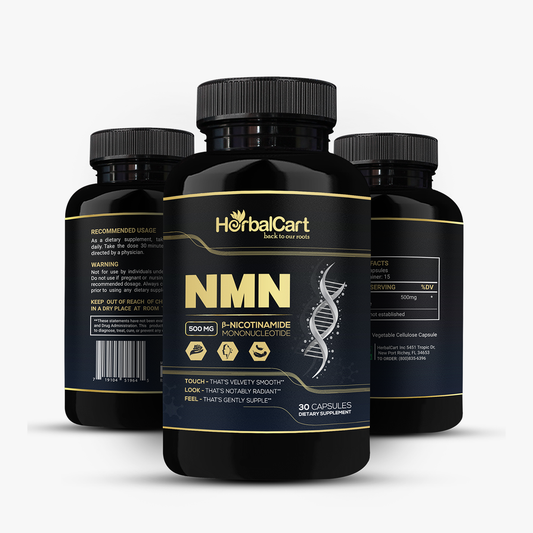Quality sleep has increasingly become challenging to get in a busy world. An estimated 50-70 million Americans are afflicted by sleeping disorders, and many others go through inadequate sleep occasionally, which, in turn, hinders their daily activities and health in the long run. While most people resolve to prescription drugs or go for the various sleep remedies available over-the-counter, there is emerging proof that the basis of nutrition mostly magnesium will work as a better and a long-term solution for the majority of sleep-deprived individuals.
Magnesium, a key mineral in the body that is part of over 300 chemical reactions, is a significant element when the regulation of sleep is in question. Despite the fact that it is essential, magnesium's recommended daily intake is not met by approximately 50% of the citizens leading to a deficiency problem in the whole nation and it may be one of the causes of our sleep crisis.
The following verses delve into the science of how magnesium has affected sleep, various benefits based on evidence, different forms of supplementation, dosing strategies for optimality, and the ways that magnesium can be effectively used to improve a holistic sleep system. Whether you were fighting with insomnia for a long time or you were just eager for highly restful sleep, the knowledge of the role of magnesium in sleep physiology may be so powerful that it can open the door to the deep and revitalizing sleep your body really craves for.
The Science: How Magnesium Affects Sleep Architecture
Magnesium's Neurological Mechanisms
Magnesium influences sleep through several interconnected pathways in the brain and nervous system:
-
GABA Regulation: Magnesium is a natural GABA (gamma-aminobutyric acid) potentiator. GABA is the primary inhibitory neurotransmitter in the central nervous system, essentially working as the brain's "off switch." By enhancing GABA activity, magnesium helps quiet neural activity, allowing the brain to relax—a prerequisite for falling asleep.
-
Glutamate Modulation: Magnesium blocks N-methyl-D-aspartate (NMDA) receptors, preventing excessive glutamate (an excitatory neurotransmitter) activity that can keep the brain hyperarousal.
-
Melatonin Production: Research published in the Journal of Research in Medical Sciences shows that magnesium is a cofactor in the production pathway of melatonin, the primary hormone responsible for regulating the sleep-wake cycle.
-
Stress Hormone Reduction: Magnesium helps regulate the hypothalamic-pituitary-adrenal (HPA) axis, which controls cortisol production. Elevated cortisol levels, particularly at night, can significantly disrupt sleep patterns.
Impact on Sleep Architecture
Sleep is rather diverse, covering a wide variety of different, collectively termed, sleep architectures. Magnesium supplementation was found to have positive effects on multiple aspects of sleep architecture, some of which are:
-
Sleep Onset: Multiple studies demonstrate that adequate magnesium levels can reduce sleep latency the time it takes to fall asleep.
-
Slow-Wave Sleep: Also known as deep sleep, this highly restorative phase may be enhanced by magnesium. A 2012 study in the Journal of Research in Medical Sciences found that elderly participants who took magnesium supplements experienced significant increases in slow-wave sleep duration.
-
REM Sleep: Some research suggests magnesium may help stabilize REM (rapid eye movement) sleep, the phase associated with dreaming and memory consolidation.
-
Sleep Continuity: Magnesium can reduce nighttime awakenings by stabilizing neural activity and promoting sustained relaxation throughout the sleep cycle.
Circadian Rhythm Regulation
Beyond its direct neurological effects, magnesium plays a role in regulating the body's internal clock:
-
Phase Shifting: Some evidence suggests magnesium may help adjust circadian rhythms, potentially beneficial for those with delayed sleep phase syndrome or jet lag.
-
Temperature Regulation: Body temperature naturally decreases during sleep, and magnesium facilitates this process by promoting vasodilation and improving peripheral blood flow.
Evidence-Based Benefits of Magnesium for Sleep
Clinical Research Findings
Multiple peer-reviewed studies have investigated magnesium's effects on sleep quality and related parameters:
-
Improved Sleep Efficiency: A double-blind, randomized trial published in 2012 found that older adults receiving magnesium supplements experienced significant improvements in sleep efficiency (the percentage of time spent in bed actually sleeping) compared to the placebo group.
-
Reduced Insomnia Severity: Research in the Journal of Medical Sciences demonstrated that magnesium supplementation decreased insomnia severity index scores, particularly in elderly subjects.
-
Enhanced Sleep Quality Measures: Studies consistently show improvements in subjective sleep quality assessments following magnesium supplementation, with participants reporting feeling more rested upon waking.
-
Decreased Early Morning Awakening: Magnesium supplementation has been shown to reduce problematic early morning awakening, particularly in older adults.
-
Restless Leg Syndrome Relief: A condition frequently associated with sleep disruption, restless leg syndrome often responds positively to magnesium supplementation, according to research in Sleep Medicine Reviews.
Population-Specific Benefits
The sleep-enhancing effects of magnesium may be particularly pronounced in specific populations:
-
Older Adults: Age-related changes in sleep architecture, combined with decreased magnesium absorption and increased excretion, make older people especially likely to benefit from supplementation.
-
Women Experiencing Hormonal Fluctuations: During menstruation, pregnancy, and menopause, hormonal changes can trigger sleep disturbances that magnesium may help alleviate.
-
Athletes and Physically Active Individuals: Intense physical activity increases magnesium requirements and excretion through sweat. Athletes deficient in magnesium commonly report sleep issues that improve with supplementation.
-
Individuals with Chronic Stress: Prolonged stress depletes magnesium stores while increasing the need for this mineral. Supplementation can break this cycle, promoting better stress management and improved sleep.
Forms of Magnesium: Choosing the Right Type for Sleep
Not all magnesium supplements are made in the same way and they differ considerably in terms of sleep enhancers. Bioavailability, absorption rates, and specific effects on the nervous system are different aspects of the various forms of magnesium.
Highly Effective Forms for Sleep
-
Magnesium Glycinate: According to most people, magnesium glycinate is the best choice of sleep supplements as it pairs magnesium with glycine, an amino acid that also has sleep-improving capabilities. This particular type is very well absorbed by the body and is unfriendly to the digestive system, hence one can use it for a long time. Studies have pointed out that the supplement is quite helpful in promoting sleep continuity.
-
Magnesium Threonate: The only form of magnesium proven to penetrate the blood-brain barrier, magnesium threonate significantly (also called magnesium L-threonate) may have enhanced effects on neural mechanisms involved in sleep. Emerging research suggests it could be particularly beneficial for addressing sleep issues related to anxiety and cognitive hyperactivity.
-
Magnesium Taurate: This form combines magnesium with taurine, an amino acid that activates GABA receptors, offering synergistic calming effects. It may be beneficial for those whose sleep problems stem from cardiovascular issues, as magnesium and taurine support heart health.
-
Magnesium Bisglycinate: Similar to magnesium glycinate but with a higher concentration of elemental magnesium, this highly absorbable form is less likely to cause digestive discomfort than other types.
Less Ideal Forms for Sleep
-
Magnesium Oxide: Despite being common and inexpensive, magnesium oxide has poor bioavailability (estimated at only 4%) and is more likely to cause digestive side effects. Its primary benefit is as a laxative, which may disrupt sleep in some individuals.
-
Magnesium Citrate: While more bioavailable than oxide, magnesium citrate has pronounced laxative effects that can interfere with sleep continuity.
-
Magnesium Sulfate: Better known as Epsom salt, this form is primarily used in baths and is not suitable for oral supplementation for sleep purposes.
Topical Applications: Beyond Oral Supplementation
Transdermal (through the skin) magnesium application represents an alternative delivery method that bypasses the digestive system:
Magnesium Baths
Epsom salt (magnesium sulfate) baths are mainly known for their regular use in the treatment of muscle aches and joints as well as for their soothing effects associated with relaxation and improved sleep. So far, the scientific proof of considerable magnesium absorption by this way is not so wide, but combining potential magnesium benefits with the well-established sleep-enhancing effects of a warm bath before sleep still remains a very nice choice. The findings of scientific research indicate that warm baths made about 1-2 hours before bedtime can influence sleep quality in a positive way by helping the body to keep proper temperature.
Magnesium Oils and Lotions
Topical magnesium chloride products may provide localized relaxation of muscles and potentially contribute to systemic magnesium levels over time. These products can be beneficial for addressing localized muscle tension that interferes with comfortable sleeping positions.
Optimal Dosing and Timing for Sleep Enhancement
Effective Dosage Ranges
The Recommended Dietary Allowance (RDA) for magnesium varies by age and gender:
-
Adult men: 400-420 mg daily
-
Adult women: 310-320 mg daily (increasing to 350-360 mg during pregnancy)
Research typically employs dosages ranging from 225-500 mg of elemental magnesium for sleep-specific benefits. Important considerations include:
-
Start Low, Go Slow: Beginning with a lower dose (around 100-200 mg) and gradually increasing can help minimize potential digestive discomfort.
-
Account for Form: Different magnesium compounds contain varying percentages of elemental magnesium. For example, magnesium glycinate is approximately 14% elemental magnesium, while magnesium oxide is about 60% (though much less is absorbed).
-
Consider Body Weight: Heavier individuals may require doses at the higher end of the therapeutic range.
Optimal Timing
Timing magnesium supplementation strategically can maximize its sleep-enhancing effects:
-
Evening Dosing: Taking magnesium approximately 1-2 hours before bedtime allows sufficient time for absorption and neural effects to manifest when needed for sleep initiation.
-
Divided Dosing: For those requiring higher amounts, dividing the daily dose between morning and evening can improve tolerance while maintaining benefits.
-
Consistency: Regular, daily supplementation is more effective than intermittent use, as consistently optimal magnesium levels are needed to positively influence sleep architecture.
Potential Side Effects and Contraindications
While magnesium is generally well-tolerated, essential considerations include the following:
-
Digestive Effects: Higher doses and certain forms (oxide and citrate) can cause loose stools or diarrhea.
-
Medication Interactions: Magnesium can interact with certain antibiotics, bisphosphonates, diuretics, and muscle relaxants. A 2-hour separation is typically recommended.
-
Medical Conditions: Those with kidney disease should consult healthcare providers before supplementing, as impaired kidney function can lead to dangerous magnesium accumulation.
-
Hypersensitivity: Though rare, allergic reactions to specific magnesium compounds can occur.
Dietary Sources: Enhancing Magnesium Intake Naturally
While supplementation offers precision and convenience, obtaining magnesium from food sources provides additional nutrients that may work synergistically for sleep improvement:
Magnesium-Rich Foods for Better Sleep
-
Dark Leafy Greens: Spinach, Swiss chard, and collard greens are excellent sources of magnesium, with a cup of cooked spinach providing approximately 157 mg.
-
Nuts and Seeds: Pumpkin seeds, almonds, and cashews are particularly rich sources of magnesium. One ounce of pumpkin seeds contains about 156 mg.
-
Whole Grains: Particularly quinoa, brown rice, and buckwheat, which provide significant magnesium alongside complex carbohydrates that can support tryptophan uptake.
-
Legumes: Black beans, chickpeas, and lentils contain substantial magnesium. A cup of black beans provides approximately 120 mg.
-
Dark Chocolate: High-cacao dark chocolate (70%+) contains about 65 mg of magnesium per ounce, offering a dual benefit as it also contains small amounts of tryptophan.
Strategic Dietary Timing
Consuming magnesium-rich foods in the evening meal may help prepare the body for sleep:
-
A dinner including leafy greens, whole grains, and some nuts or seeds creates a magnesium-rich meal that supports natural melatonin production.
-
Combining these foods with protein sources containing tryptophan (turkey, chicken, eggs) can enhance sleep-promoting effects.
Magnesium Synergies: Complementary Nutrients for Sleep
Magnesium's sleep-enhancing effects can be amplified when combined with specific complementary nutrients:
Vitamin D
Research published in the Journal of Sleep Research suggests that vitamin D and magnesium work cooperatively in sleep regulation. Vitamin D receptors are present throughout brain regions involved in sleep, and proper vitamin D metabolism requires adequate magnesium.
B Vitamins
Several B vitamins play crucial roles in sleep biochemistry:
-
Vitamin B6 is essential for converting tryptophan to serotonin (and subsequently melatonin)
-
Vitamin B12 helps regulate circadian rhythms
-
Folate (B9) deficiency has been linked to insomnia and restless leg syndrome
Magnesium facilitates many reactions involving B vitamins, creating a synergistic relationship.
Calcium
The relationship between calcium and magnesium is complex and interdependent, with optimal ratios (typically suggested as 2:1 calcium to magnesium) potentially enhancing sleep quality. Calcium helps the brain use tryptophan to manufacture melatonin, while magnesium regulates calcium entry into cells.
Addressing Specific Sleep Disorders with Magnesium
Insomnia
Chronic insomnia characterized by difficulty falling or staying asleep may respond particularly well to magnesium glycinate or threonate, primarily when the condition is associated with anxiety or hyperarousal. Research suggests that individuals with insomnia often exhibit lower magnesium levels in serum tests.
Restless Leg Syndrome (RLS)
Multiple studies have linked magnesium deficiency to RLS, a neurological disorder characterized by uncomfortable sensations and an irresistible urge to move the legs, particularly at night. A trial published in Sleep Medicine found that magnesium supplementation significantly reduced RLS symptoms in affected individuals.
Sleep Apnea
While magnesium cannot cure obstructive sleep apnea, some research suggests it may reduce the severity of symptoms by improving muscle function in the upper airway and reducing inflammation. This could enhance the effectiveness of primary treatments like CPAP therapy.
Periodic Limb Movement Disorder
Similar to RLS but occurring during sleep rather than while awake, periodic limb movement disorder may improve with magnesium supplementation, particularly when combined with iron if deficiency is present.
Lifestyle Integration: Maximizing Magnesium's Sleep Benefits
Complementary Sleep-Promoting Practices
Magnesium supplementation works best as part of a comprehensive sleep hygiene strategy:
-
Stress Reduction Techniques: Meditation, deep breathing, and progressive muscle relaxation enhance magnesium's GABA-potentiating effects.
-
Blue Light Management: Reducing exposure to blue light from screens in the evening preserves natural melatonin production, which magnesium supports.
-
Temperature Regulation: Maintaining a calm sleeping environment (65-68°F/18-20°C) works synergistically with magnesium's effects on body temperature regulation.
-
Regular Exercise: Physical activity increases magnesium utilization and enhances its sleep-promoting benefits when performed earlier in the day.
Creating a Magnesium-Focused Sleep Routine
An evidence-based evening routine incorporating magnesium might include:
-
Consuming a magnesium-rich dinner 3-4 hours before bedtime
-
Taking an appropriate magnesium supplement 1-2 hours before sleep
-
Enjoying a warm Epsom salt bath to simultaneously raise body temperature (which, when it later falls, helps trigger sleepiness)
-
Practicing 10-15 minutes of meditation or gentle yoga to enhance magnesium's calming neurological effects
Special Populations: Tailored Approaches
Magnesium for Children's Sleep
Growing children have significant magnesium requirements, and deficiency may contribute to sleep problems in pediatric populations. Research published in Scientific Reports showed that children with attention deficit hyperactivity disorder (ADHD) often have lower magnesium levels and sleep disturbances that may improve with supplementation.
Dosage considerations for children should be based on weight and age, with pediatrician supervision recommended.
Pregnancy and Postpartum
During pregnancy, magnesium requirements increase, while sleep often becomes more challenging. Magnesium supplementation may:
-
Help manage pregnancy-related leg cramps that disrupt sleep
-
Reduce insomnia related to anxiety about childbirth or parenthood
-
Support optimal fetal development of sleep-regulating brain regions
Magnesium may help new mothers maximize sleep quality during limited sleep opportunities.
Older Adults
Age-related changes in sleep architecture coincide with decreased magnesium absorption and increased excretion, creating a perfect storm for sleep disruption. Research consistently shows that older adults may experience the most pronounced benefits from magnesium supplementation, particularly for:
-
Increasing deep sleep time
-
Reducing nighttime awakenings
-
Improving subjective sleep quality
Measuring Success: Tracking Sleep Improvements
Objective Measures
Several tools can help quantify magnesium's impact on sleep:
-
Sleep Tracking Devices: Wearable technology that monitors sleep stages can provide data on changes in sleep latency, efficiency, and time spent in different sleep phases.
-
Polysomnography: For those with access through sleep studies, this gold-standard measurement can precisely document changes in sleep architecture following magnesium intervention.
-
Actigraphy: Less intrusive than polysomnography, wrist-worn actigraphy devices track movement patterns to estimate sleep parameters.
Subjective Assessments
Equally important are subjective measures of sleep quality:
-
Sleep Diaries: Recording bedtime, wake time, perceived sleep quality, and daytime energy can reveal patterns and improvements.
-
Standardized Questionnaires: Validated tools like the Pittsburgh Sleep Quality Index (PSQI) or Insomnia Severity Index provide numerical scores that can be tracked over time.
-
Daytime Functioning Metrics: Improvements in concentration, mood, and energy serve as indirect indicators of enhanced sleep quality.
Troubleshooting: When Magnesium Doesn't Seem to Help
If magnesium supplementation doesn't yield the expected sleep improvements, consider these potential issues:
Form and Dosage Optimization
-
Try a Different Form: If one magnesium compound proves ineffective, another (particularly switching to glycinate or threonate) may yield better results.
-
Adjust Timing: Experimenting with taking magnesium at different times relative to bedtime may improve outcomes.
-
Evaluate Dose: Both insufficient and excessive dosing can limit benefits; gradual adjustments may be necessary to find the optimal amount.
Underlying Issues
Persistent sleep problems despite appropriate magnesium supplementation may indicate:
-
Comorbid Sleep Disorders: Conditions like sleep apnea require specific interventions beyond nutritional approaches.
-
Additional Deficiencies: Inadequate vitamin D, iron, B vitamins, or other nutrients may limit magnesium's effectiveness.
-
Environmental Factors: Noise, light, uncomfortable bedding, or temperature issues may override magnesium's benefits.
-
Psychological Considerations: Anxiety, depression, or PTSD often require comprehensive treatment approaches for sleep improvement.
Conclusion: A Balanced Approach to Magnesium for Sleep
The evidence attributing to magnesium's role in the regulation of sleep is increasing in number and is now seen as a powerful evidence base. Magnesium is a great alternative for many people who have a problem with sleep disorders, as scientific research has proven it to be the case.
Nevertheless, magnesium supplementation shows excellent outcomes when combined with a comprehensive approach to sleep health that addresses nutritional status, stress management, environmental factors, and sleep behaviors. By unveiling the science behind magnesium's sleep-enhancing effects and by including evidence-based strategies of supplementation, a lot of individuals may have the possibility to meet their healthcare needs, which is the ultimate goal, and thus positively affect their health during day time and at the same time have a tumultuous state of health.
It is a good idea for individuals who are suffering from sleep disorders, such as insomnia, restless nights, or unrefreshing sleep, to try magnesium as one potential and natural remedy, of natural origin, given that they are under the care of experts in the field. Like any medical treatment, the involvement of healthcare professionals is crucial, especially for people with pre-existing medical conditions or those taking medication.
The road to improved sleep for most people frequently requires many different strategies that work together. In the vast majority, achieving the right level of magnesium may be a keystone or the most important part of this complex interplay whereby we can at last have a good night's rest by allowing our brains and bodies to carry out the necessary processes uninterrupted.
Note: Always consult a healthcare provider before beginning any new supplement regimen, especially if you have existing health conditions or are taking medications.










































































